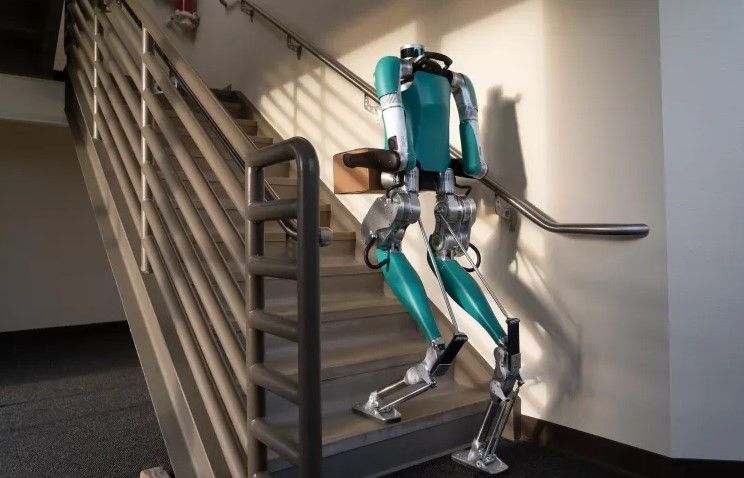- TECHSWU
- Posts
- TECHSWU
TECHSWU


In an eye-opening exploration of the future of work, the New York Times highlights Mechanize, a bold San Francisco start-up on a mission to automate white-collar jobs at lightning speed. Gone are the days of tech executives claiming that AI is merely here to assist; today’s advanced systems can write software and conduct in-depth research, raising alarms about job security among college graduates.
Mechanize’s founders envision a radical shift towards a fully automated economy, where every job—including those of professionals like doctors and lawyers—is on the chopping block. As automation creeps closer to becoming mainstream, the promise of efficiency brings both excitement and anxiety.
Will AI truly liberate us from mundane tasks, or will it render the workforce obsolete? The stakes are high as we stand at the brink of a post-labor future.

Elon Musk has taken a step back from his recent harsh criticisms of former President Donald Trump, admitting he regrets some of his social media posts, calling them "too far." This comes after a phase of escalating public tension between the tech mogul and the once-close ally.
Musk previously claimed that Trump’s administration hid files related to Jeffrey Epstein to cover up the president’s dubious ties. However, after a series of barbs and a stunning break over controversial spending plans, Musk is seemingly trying to mend fences, even deleting some of his critical tweets.
Trump's response has been mixed; while he initially declared their relationship over, he later reminisced about their "great relationship." As both figures navigate this rocky patch, the world watches how their fragile alliance will evolve, especially with Musk hinting at supporting primary challenges against Republican supporters of Trump's spending bill.


Amazon is gearing up to revolutionize package delivery with the training of "humanoid robots"! According to reports, the retail giant is developing advanced AI software that will allow these robots to hop onto the backs of Rivian electric vans and deliver packages right to your doorstep. An insider revealed that Amazon is nearly finished constructing a specialized indoor training facility in San Francisco, complete with an obstacle course tailored for this futuristic delivery team.
As the e-commerce behemoth already utilizes various autonomous robots in its warehouses, integrating humanoid robots into their delivery fleet could mark a significant leap towards a more automated shopping experience.

Salesforce is taking a bold stance in the AI landscape by restricting rivals from utilizing data accessed through Slack, its popular workplace messaging platform. According to reports, Salesforce has recently updated its terms of service to block other software companies from searching, storing, or indexing Slack messages, effectively tightening the reins on data usage.
This move comes amid increasing scrutiny on how AI firms handle customer data, particularly concerning privacy and security. Salesforce highlighted its commitment to creating a transparent framework for data management in its AI endeavors.
As a result, tools like Glean, which relied on Slack data for enhancing AI functionalities, may face significant limitations. This shift not only marks a pivotal moment for Salesforce but also raises important questions about data accessibility and competition in the rapidly evolving AI sector.

Exciting news from Snap Inc.! The company behind Snapchat is gearing up to launch its next-generation AR smart glasses, aptly named 'Specs', in 2026.
These lightweight wearables are set to make waves in the tech world, positioning Snap to compete with heavyweights like Meta's Ray-Ban smart glasses and Apple's Vision Pro. With cutting-edge augmented reality and artificial intelligence features on the horizon, Specs promises to elevate the way we interact with our surroundings.
As anticipation builds, the tech community is buzzing about the potential of these innovative glasses to redefine our digital experiences.

Get ready for the next big tech drop! Apple is reportedly gearing up to launch its highly anticipated iPhone 17 series in September 2025, and it's set to include four exciting models: the iPhone 17, 17 Pro, 17 Pro Max, and the all-new iPhone 17 Air. The iPhone 17 Air is touted to be the sleekest option yet, potentially ditching the USB-C port for an ultra-slim design.
Rumors suggest that this series will be powered by the cutting-edge A18 and A19 chipsets, promising enhanced performance and features.

Astronomers are harnessing the power of artificial intelligence to uncover the mysteries of black holes, particularly Sagittarius A*, the supermassive black hole at the center of our Milky Way. A groundbreaking neural network, trained on millions of simulations, has decoded fuzzy data from these enigmatic objects, leading to new insights.
By analyzing previously discarded information from the Event Horizon Telescope, the AI has suggested that Sagittarius A* spins at maximum speed, a surprising revelation that challenges existing theories. With this new understanding, researchers are gaining valuable clues about the black hole's behavior and its surrounding material.
Lead researcher Michael Janssen emphasizes that this is just the beginning, as this AI approach opens doors for further exploration and refinement of black hole models. As technology and astronomy converge, we inch closer to unlocking the secrets of these cosmic giants.